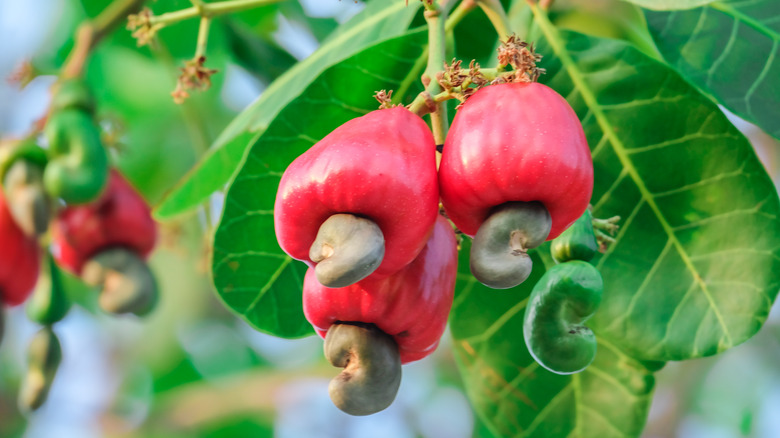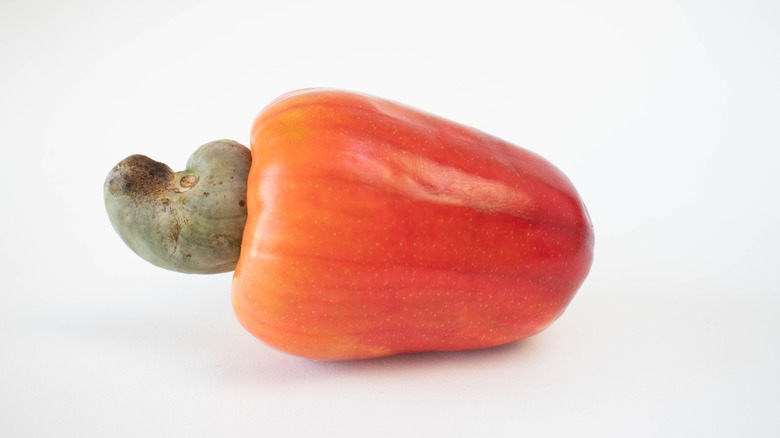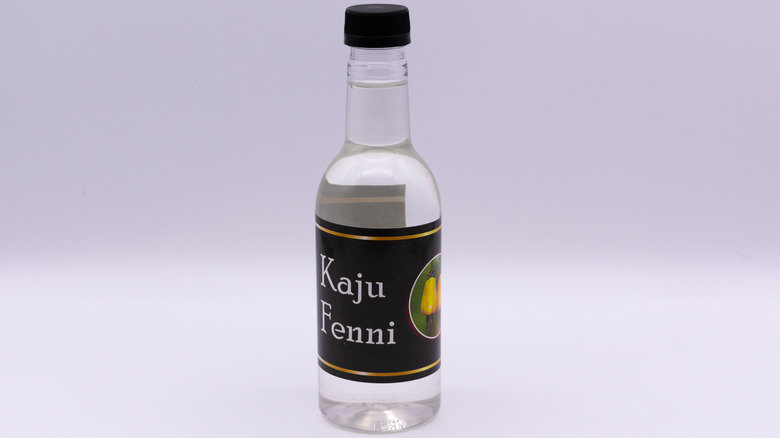What Is A Cashew Apple And What Does It Taste Like?
Life comes at you fast; one minute you're eating a handful of cashews, the next minute you find out that the tasty legume is part of what's known as cashew apple.
Say what now?
Yep, cashews come from a tree that bears what's commonly known as cashew apples. Well, let's not get ahead of ourselves. A cashew apple is what's known in the scientific world as a pseudo fruit, which is a fancy way of saying parts of the 'fruit's' flesh does not come from the plant's ovary, but from other areas of the specimen. Other pseudo fruits include strawberries, pears, apples, and pineapples. (via Lido Learning)
What does a cashew apple taste like?
The taste has been characterized as a mix between front-of-the-mouth sweet with a touch of sour, similar to an apple. The smell is typical of the fruit: sweet, juicy, and fruity. Since the fruit doesn't last long before decaying and is what's known as 'touch-sensitive,' consumption of cashew apples must be kept close to the harvest site, reports About Nuts. As is common with many fruits, the longer the fruit ripens on the branch, the sweeter the fruit will be, according to the University of Florida.
Touch-sensitive is a fancy scientific way of saying that a plant needs its personal space — handling actually speeds the decaying process. In fact, recent studies have shown all plants are touch-sensitive. While not the most sensitive plant in the world (that honor goes to mimosa pudica – the leaves of the plant instantly curl when touched), the fruit spoils with a day or two.
The University of Florida cautions it's important to leave harvesting cashews to the professionals: The plant emits a sap with cardol and anacardic acid, a substance similar to poison ivy. Burns and dermatitis are common to people who don't take proper precautions in removing the pseudo fruit (via Delish).
How do you use a cashew apple?
Consumption of the cashew apple tends to stay close to home, as the fruit doesn't last long before decaying. You'll find the cashew apple in drinks and in fruit spreads like jams and jellies, though most cultivation is directed toward the production of the valuable nut crop (via Britannica).
Like most fruit trees, the cashew apple and nut drop to the ground together when both have fully ripened on the branch. The big cashew farms then pop off the nut and toss the cashew apple back to the ground. On those types of farms, the pseudo fruit gets eaten by livestock. In smaller farms, the cashew apples are sometimes picked up and taken to sell at local markets or fruit and vegetable processing companies.
In India, cashew apples are used to make the liquor feni. Fun fact: like ouzo and champagne, feni s a geographically limited product; feni made anywhere other than Goa can't legally be called feni, Ozy reports.


